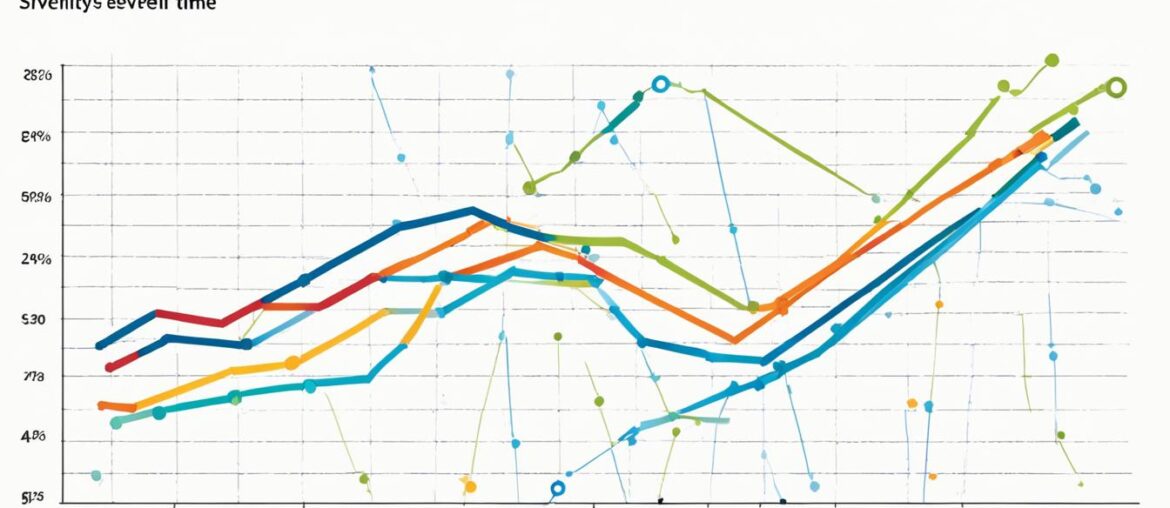Nurses play a vital role in tackling the issue of obesity, both in terms of prevention strategies and effective management approaches. As healthcare providers, nurses possess the knowledge and skills necessary to identify individuals who need to lose weight and develop targeted interventions to support their weight loss goals. Their role extends beyond providing advice on dieting and exercise; nurses also play a crucial part in educating patients about the risks associated with obesity and advocating for healthy lifestyle choices.
To ensure the success of obesity prevention and management, nurses utilize evidence-based practices in their interventions, tailoring their approach to meet the unique needs of each patient. By addressing the individual factors that contribute to obesity, such as genetic predispositions, socioeconomic status, and cultural influences, nurses can provide comprehensive and personalized care. They work collaboratively with other healthcare professionals to create holistic care plans, encompassing dietary modifications, behavior interventions, and, in severe cases, surgical interventions.
Nurses also play a vital role in promoting behavior change and patient education. By serving as role models, providing health teaching, and promoting community engagement, they empower individuals to make lasting lifestyle changes and take control of their health.
In conclusion, nurses have a significant impact on obesity prevention and management, utilizing their expertise and compassion to support patients on their weight loss journey. Through their ongoing research and commitment to innovation, nurses continue to shape the future of obesity prevention strategies, ensuring better outcomes for individuals and communities (check this post out).
Key Takeaways:
- Nurses play a pivotal role in both obesity prevention and management.
- They identify individuals in need of weight loss and develop personalized interventions.
- Nurses educate patients about the risks of obesity and advocate for healthy lifestyles.
- They work collaboratively with other healthcare providers to create comprehensive care plans.
- Nurses promote behavior change and patient education through role modeling and community engagement.
Obesity Rates and Impact
Obesity rates have been steadily rising, presenting a significant challenge in healthcare. Between 1993 and 2011, the number of adults classified as obese in the UK nearly doubled. This growing obesity epidemic has far-reaching consequences for individuals and society as a whole.
Obesity is associated with numerous health conditions, including diabetes, heart disease, and psychological issues. The excess weight places strain on various body systems, leading to a higher risk of developing chronic diseases and reduced quality of life.
The impact of the obesity epidemic extends beyond individual health. It poses a significant burden on healthcare systems, both financially and resource-wise. The costs of obesity-related healthcare are staggering, with expenses for medical treatments, medications, and hospitalizations piling up. This strain on resources emphasizes the urgent need to address the obesity crisis.
Nurses are at the forefront of combating the obesity epidemic. Their role in obesity prevention and management is vital to improving the health outcomes of individuals and reducing the burden on healthcare systems. Through their expertise and interventions, nurses can make a substantial impact on curbing obesity rates and improving overall health and well-being.
Causes and Contributing Factors
Obesity is influenced by a combination of genetic and socioeconomic factors. Understanding these causes and contributing factors is crucial for tailoring interventions and support to individuals at risk.
Genetic Factors in Obesity
Genetic factors can contribute to obesity, with individuals who have a family history of obesity being more likely to struggle with weight management. Certain ethnicities and races also have higher obesity rates.
Research has shown that genes can influence appetite, metabolism, and the tendency to store fat. These genetic variations can make it more challenging for some individuals to maintain a healthy weight.
Socioeconomic Factors and Obesity
Socioeconomic factors, such as income and education level, can also play a role in obesity rates. People with lower socioeconomic status may have limited access to healthy food options and resources for physical activity.
Lack of affordable healthy food choices in low-income neighborhoods, known as food deserts, can contribute to unhealthy eating habits and weight gain. Additionally, limited access to safe places for exercise and recreation can hinder physical activity levels in these communities.
To illustrate the impact of socioeconomic factors on obesity rates, consider the following table:
| Income Level | Obesity Rate | |
|---|---|---|
| High-income | 15% | |
| Low-income | 30% | |
| No income | Data not available | |
Understanding the complex interplay between genetic and socioeconomic factors in obesity is essential for developing comprehensive approaches to obesity prevention and management.
Assessment and Diagnosis

Nurses play a critical role in assessing and diagnosing individuals at risk for obesity. Through comprehensive screenings, measurements, and physical examinations, nurses can identify individuals who are overweight or obese. This allows for targeted interventions and support to prevent further weight gain and promote healthier lifestyles.
One common assessment tool used by nurses is the measurement of body mass index (BMI). BMI is calculated using weight and height measurements and provides an estimate of a person’s body fat levels. It is an important indicator of overall health and is widely used in obesity screening.
Physical examinations also play a crucial role in the assessment and diagnosis of obesity. Nurses can assess body habitus, distribution of fat, and the presence of obesity-related conditions through careful examination. This helps in understanding the individual’s unique circumstances and tailoring interventions accordingly.
By conducting thorough assessments and screenings, nurses can accurately identify individuals who are at risk for obesity and provide them with the necessary support and education to maintain a healthy weight. This proactive approach to assessment and diagnosis is essential for effective obesity prevention and management.
Medical Management
Nurses play a critical role in the medical management of obesity. They provide comprehensive care to individuals with obesity by offering guidance on dietary modifications, assisting in developing healthier eating habits, and implementing behavior interventions for sustainable weight loss.
One important aspect of medical management is dietary modification for weight loss. Nurses can educate individuals on healthy eating habits and develop personalized meal plans to promote weight loss (see my post here). By emphasizing nutrient-dense foods and portion control, nurses help patients adopt a balanced and sustainable approach to weight management.
Behavior interventions are also effective in supporting weight loss efforts. Nurses utilize techniques such as motivational interviewing and cognitive-behavioral therapy to address underlying behaviors and mindset related to food choices and physical activity. These interventions help patients develop positive habits and overcome barriers to long-term weight management.
In some cases, medications may be necessary to aid in weight management. Nurses work alongside healthcare providers to evaluate the appropriateness and effectiveness of medications for weight management. They provide information, monitor side effects, and assist patients in understanding the benefits and potential risks associated with these medications.
A holistic approach to medical management, combining dietary modifications, behavior interventions, and medications when necessary, yields improved outcomes for patients with obesity. Nurses play a pivotal role in guiding individuals towards healthier lifestyles and supporting them on their weight loss journey.
Surgical Interventions

In severe cases of obesity, surgical interventions may be necessary. As a nurse, I play a crucial role in the preoperative evaluation of patients, assessing their eligibility for weight loss surgery and providing education on the risks and benefits of these procedures.
During the preoperative stage, I work closely with the healthcare team to ensure that the patient is mentally and physically prepared for surgery. We conduct thorough evaluations, including medical history assessments and diagnostic tests, to determine the suitability of bariatric surgery. This process helps us identify individuals who can benefit the most from surgical interventions.
Once the patient is deemed eligible for weight loss surgery, I provide comprehensive education about the procedure. It is essential for patients to understand the potential risks, expected outcomes, and lifestyle changes that will be required after surgery. By equipping patients with this knowledge, I empower them to make informed decisions about their healthcare.
“Weight loss surgery is not a quick fix. It’s a tool that can help you achieve significant weight loss and improve your overall health. However, it requires commitment and lifestyle changes to ensure long-term success.”
Postoperative care and monitoring are crucial aspects of nursing care for patients who undergo bariatric surgery. I work closely with the patient during the recovery period to provide support, education, and ongoing monitoring. This involves closely monitoring the patient’s vital signs, managing pain, and ensuring that they adhere to the prescribed postoperative diet and exercise regimen.
As a nurse, I am also responsible for addressing any concerns or complications that may arise post-surgery. I collaborate with the healthcare team to provide timely interventions and ensure the patient’s well-being. Additionally, I offer emotional support throughout the recovery process, as it can be a transformative journey for patients.
Benefits of Bariatric Surgery
Bariatric surgery offers significant benefits for individuals struggling with obesity. It not only aids in weight loss but also improves or resolves obesity-related comorbidities such as type 2 diabetes, hypertension, and sleep apnea. The surgery enhances overall quality of life and reduces the risk of obesity-related complications, leading to a healthier and more fulfilling future.
Types of Bariatric Surgery
| Procedure | Description |
|---|---|
| Gastric Bypass | A procedure that involves creating a small pouch from the stomach and rerouting the small intestine to limit food intake and nutrient absorption. |
| Gastric Sleeve | During this procedure, a large portion of the stomach is removed, leaving behind a smaller sleeve-shaped stomach, reducing the amount of food that can be consumed. |
| Gastric Banding | In this procedure, an adjustable band is placed around the upper part of the stomach, creating a small pouch that limits food intake. |
Bariatric surgery is a transformative option for individuals who have been unsuccessful in achieving sustainable weight loss through non-surgical methods. It is essential to consult with healthcare professionals to determine the most suitable surgical intervention based on individual circumstances and goals.
Behavioral Change and Education
Nurses play a pivotal role in promoting behavior change and providing patient education for obesity management. By serving as role models and educators, nurses can empower individuals with the knowledge and tools to make healthier choices.
Education as a Catalyst for Change
One of the key aspects of nursing intervention in obesity management is education. By providing patients with evidence-based information on nutrition, physical activity, and overall health, nurses equip them with the necessary knowledge to make informed decisions. This education serves as a catalyst for behavior change, empowering individuals to take control of their own health.
Nurses can tailor educational interventions to meet the specific needs and preferences of each patient. This may include providing written materials, conducting one-on-one counseling sessions, or utilizing multimedia resources for visual learning. By presenting information in a clear and accessible manner, nurses can effectively communicate the risks and consequences of obesity, motivating patients to make positive changes.
Setting Realistic Goals and Action Plans
Another essential role of nurses in promoting behavior change is helping patients set realistic goals and develop action plans. Nurses collaborate with individuals, taking into account their unique circumstances, preferences, and capabilities. By involving patients in goal setting, nurses empower them to take ownership of their health journey.
“I believe in the power of setting small achievable goals. By breaking down the process into manageable steps, patients can gradually work towards their desired outcomes.”
– Nurse Sarah Thompson
Through a collaborative approach, nurses guide patients in developing action plans that align with their goals. These action plans may include implementing healthier eating habits, increasing physical activity, practicing stress management techniques, or seeking social support (check out my post on stress management techniques here). By providing support and regular follow-up, nurses help patients stay motivated and accountable.
Health Teaching and Promotion Strategies
Nurses employ various health teaching and promotion strategies to educate patients on the importance of obesity management. These strategies may include interactive workshops, group sessions, or community outreach programs.
As part of health teaching, nurses emphasize the long-term benefits of a healthy lifestyle and the potential risks associated with obesity. They discuss the impact of nutrition, physical activity, and stress management on overall well-being. By reinforcing positive behaviors and addressing barriers, nurses empower patients to make sustainable changes in their lives.
In addition to individual education, nurses also play a role in community-based health promotion. They collaborate with community organizations, schools, and local authorities to design and implement obesity prevention programs. These programs raise awareness, provide resources, and create supportive environments that facilitate behavior change on a broader scale.
Raising Awareness Through Patient Education:
| Topic | Key Points |
|---|---|
| Understanding the Risks |
|
| Nutrition Education |
|
| Physical Activity Promotion |
|
| Behavior Modification Strategies |
|
Nurses are at the forefront of patient education and health promotion, driving positive behavior change in individuals with obesity. By providing comprehensive education, setting realistic goals, and utilizing effective teaching strategies, nurses empower patients to take control of their health and make lasting changes.
Collaboration and Coordination of Care

Effective obesity prevention and management require a multidisciplinary approach, involving collaboration and coordination among various healthcare professionals. Nurses play a crucial role in this process by working closely with other providers, including physicians, dietitians, psychologists, and exercise specialists, to develop comprehensive care plans for individuals with obesity.
By collaborating with these experts, nurses can leverage their unique skills and expertise to ensure that interventions are aligned with the individual’s specific needs and goals. This multidisciplinary approach to obesity management allows for a holistic and integrated care experience, maximizing the effectiveness of prevention and management strategies.
Nurses coordinate care by facilitating communication and information sharing among the healthcare team, ensuring that everyone is on the same page regarding the individual’s care plan. Through effective coordination, potential gaps or overlaps in care can be identified and addressed, leading to optimal outcomes for patients with obesity.
Moreover, this collaborative and coordinated approach extends beyond the healthcare setting. Nurses actively engage with community resources and organizations to provide a seamless continuum of care for individuals with obesity. By tapping into community-based programs and initiatives, nurses can further support prevention efforts and enhance the overall well-being of their patients.
“The collaboration and coordination among healthcare professionals, with nurses at the forefront, is essential for delivering effective care and support to individuals with obesity.”
Nurse-led Multidisciplinary Care Team
Within the multidisciplinary team, nurses serve as central coordinators, leveraging their expertise in patient education, monitoring, and advocacy. By taking a patient-centered approach, nurses ensure that the care provided is tailored to the individual’s unique needs and circumstances.
The nurse’s role is diverse and encompasses various responsibilities, such as:
- Assessing and monitoring the patient’s progress, including weight loss, dietary changes, and adherence to the care plan.
- Providing education on nutrition, physical activity, and self-management strategies.
- Offering emotional support and counseling to address the psychological and emotional aspects of obesity.
- Advocating for patients’ needs, rights, and access to resources across different healthcare settings and community environments.
- Collaborating with healthcare providers to evaluate and adjust treatment plans as necessary.
This collaborative and coordinated approach ensures that individuals with obesity receive comprehensive, patient-centered care. By combining the expertise of multiple healthcare professionals and leveraging the nursing profession’s unique contributions, the multidisciplinary care team maximizes the chances of successful obesity prevention and management.
Patient Advocacy and Community Engagement

As nurses, we play a crucial role in advocating for patients with obesity, ensuring that their voices are heard and their needs are addressed. We understand the challenges they face and strive to create a supportive environment that empowers them towards their journey to better health.
One aspect of patient advocacy for obesity is championing policy changes that support prevention and management efforts. By advocating for policies that promote healthier food options, increased physical activity, and improved access to healthcare services, nurses can help create an environment that facilitates healthy living.
How Do Nurses Implement a Holistic Approach to Obesity Prevention and Management?
Nurses play a crucial role in promoting a holistic obesity prevention approach. They focus on educating patients about healthy lifestyle choices, such as balanced nutrition and regular exercise, while addressing any underlying emotional or mental health issues. By providing comprehensive care, nurses aim to prevent and manage obesity effectively.
Future Directions and Research

Ongoing research plays a crucial role in advancing obesity prevention and management strategies. As the fight against obesity continues, nurses actively participate in research efforts to explore innovative approaches, evaluate the effectiveness of nursing interventions, and identify best practices for promoting behavior change.
In the future, we can expect to see exciting developments in obesity prevention. Technology-based interventions offer promising opportunities to engage individuals in their weight management journey. The use of smartphone apps, wearables, and virtual reality may enhance access to information, provide real-time feedback, and offer personalized support.
Telehealth is another area that holds great potential. Remote consultations and virtual support groups can help bridge the gap between healthcare providers and patients, making obesity management more accessible and convenient. This approach also promotes continuous care and enables healthcare professionals to monitor progress closely.
Personalized care plans tailored to individual needs will likely become more prevalent. Identifying specific risk factors, genetic predispositions, and socioeconomic considerations can inform targeted interventions. Personalized plans can address barriers to weight management and provide tailored strategies that resonate with each individual.
The Role of Nurses in Shaping the Future
Nurses will continue to play a vital role in shaping the future of obesity prevention and management. Through their involvement in research, they contribute valuable insights and evidence-based practices that drive innovation. By staying informed about current trends and emerging strategies, nurses can provide the best possible care to their patients.
Nurses are at the forefront of patient care, and their holistic approach ensures that the physical, emotional, and social aspects of obesity are addressed. They possess unique skills in patient education, behavior change, and advocacy, which are key to achieving long-term success in obesity management.
| Key Takeaways |
|---|
| Nurses actively participate in obesity research, exploring innovative approaches and evaluating interventions. |
| Future trends in obesity prevention may include technology-based interventions, telehealth, and personalized care plans. |
| Nurses shape the future by contributing valuable insights, providing holistic care, and advocating for patients. |
As the field of obesity prevention and management evolves, nurses will continue to be at the forefront of efforts to combat this widespread health issue. Through ongoing research and a dedicated commitment to patient care, nurses have the power to make a significant impact on the future of obesity prevention and management strategies.
Conclusion
In conclusion, nurses have a critical impact in the prevention and management of obesity. As integral members of healthcare teams, nurses play a vital role in providing holistic care to individuals with obesity. Through screenings, assessments, education, and advocacy, nurses contribute to promoting behavior change and empowering patients to make healthier choices. By addressing the complex factors that contribute to obesity and collaborating with other healthcare professionals, nurses significantly improve outcomes for patients with obesity.
The importance of nurses in obesity prevention cannot be overstated (check out my post on nurses in obesity prevention here). Their expertise in identifying individuals at risk for obesity and implementing evidence-based interventions is crucial for effective weight management (check this post out). Nurses’ role as educators and advocates is instrumental in raising awareness about the risks of obesity and promoting healthy lifestyles. Their continuous support and guidance empower individuals to make sustainable lifestyle changes and achieve long-term weight management.
Looking ahead, the role of nurses in obesity prevention and management will continue to evolve and expand. Ongoing research and innovation will shape future strategies, with nurses at the forefront of developing new approaches to tackle obesity. With a focus on personalized care plans, technology-based interventions, and interdisciplinary collaboration, nurses will lead the way in improving obesity prevention and management outcomes.




